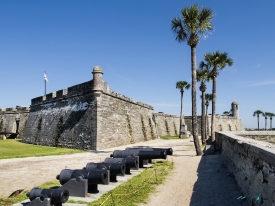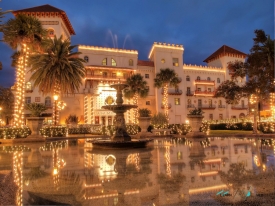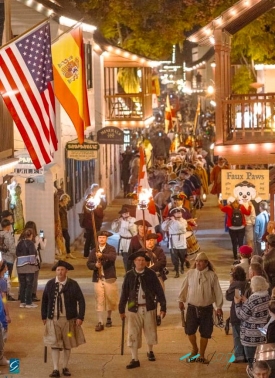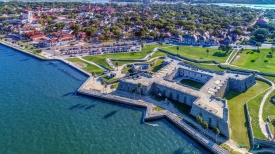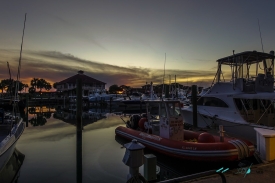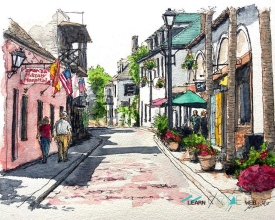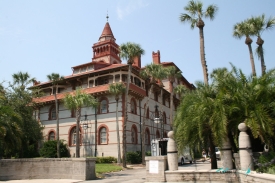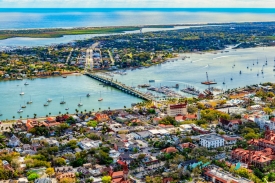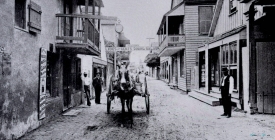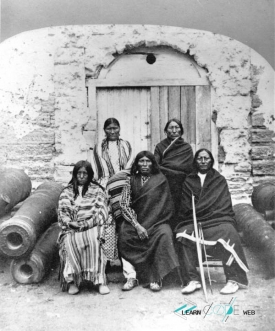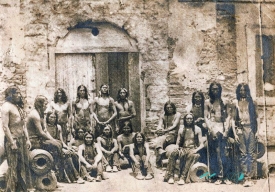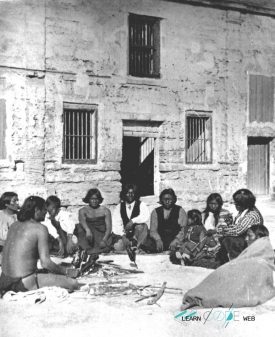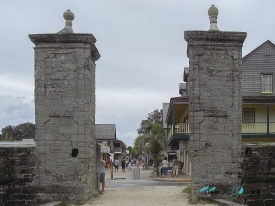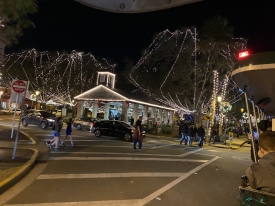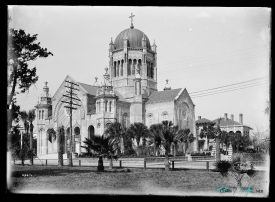The colonial city of Saint Augustin, located just one hour south of Jacksonville and four hours from the city of Miami, has the honor of being the oldest surviving and continuously inhabited continental city in the United States.
Founded in 1565 by Pedro Menéndez de Avilés, in addition to the original indigenous groups, only French Huguenots had been established.
Fortified square, from the British arrival to the area, the attacks follow one another continuously during the 16th and 17th centuries; first by the pirate Francis Drake, and then by the colonies established in southern Virginia, from which numerous black slaves fled to take refuge in Spanish territory, where they could have work and pay for their freedom, as well as better living conditions.
Between 1672 and 1695, the Spanish built a stone fort, Castillo de San Marcos, to better defend San Agustín from challengers.
In 1763 it becomes British by the Treaty of Paris, and is returned in 1783, until in 1861 it is taken by the US armed forces during the civil war, after which it becomes part of the state of Florida.
Strolling through the streets of San Agustín, located on a peninsula surrounded by a couple of sandy islands connected by bridges, is like walking through a Castilian town transposed in an environment of Mediterranean light and almost tropical vegetation.
The Colonial Quarter is a small and reduced set of streets with low houses, many of them clustered around interior patios, which preserve the Spanish spirit, there are numerous restaurants and bars settled in old colonial-style mansions. From great Irish pubs, to Spanish or Latin American style cuisine, the gastronomic diversity is wide in Saint Augustine.
Also noteworthy is the current Flagler College building, the former palace of millionaire Henry Flagler, who decided to build it after attending a commemoration in honor of Ponce de León in the 19th century. Its magnificent interior dome and coffered ceiling are worth seeing.
Founded in 1565 by Pedro Menéndez de Avilés, in addition to the original indigenous groups, only French Huguenots had been established.
Fortified square, from the British arrival to the area, the attacks follow one another continuously during the 16th and 17th centuries; first by the pirate Francis Drake, and then by the colonies established in southern Virginia, from which numerous black slaves fled to take refuge in Spanish territory, where they could have work and pay for their freedom, as well as better living conditions.
Between 1672 and 1695, the Spanish built a stone fort, Castillo de San Marcos, to better defend San Agustín from challengers.
In 1763 it becomes British by the Treaty of Paris, and is returned in 1783, until in 1861 it is taken by the US armed forces during the civil war, after which it becomes part of the state of Florida.
Strolling through the streets of San Agustín, located on a peninsula surrounded by a couple of sandy islands connected by bridges, is like walking through a Castilian town transposed in an environment of Mediterranean light and almost tropical vegetation.
The Colonial Quarter is a small and reduced set of streets with low houses, many of them clustered around interior patios, which preserve the Spanish spirit, there are numerous restaurants and bars settled in old colonial-style mansions. From great Irish pubs, to Spanish or Latin American style cuisine, the gastronomic diversity is wide in Saint Augustine.
Also noteworthy is the current Flagler College building, the former palace of millionaire Henry Flagler, who decided to build it after attending a commemoration in honor of Ponce de León in the 19th century. Its magnificent interior dome and coffered ceiling are worth seeing.



